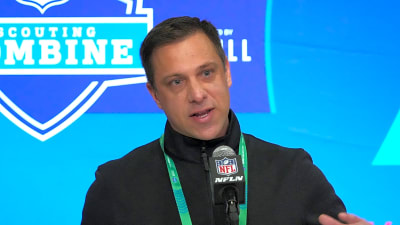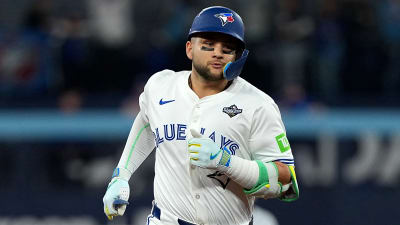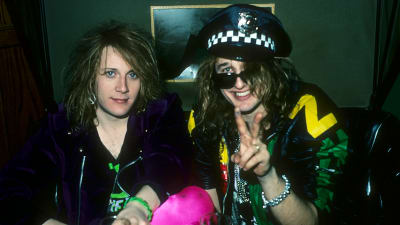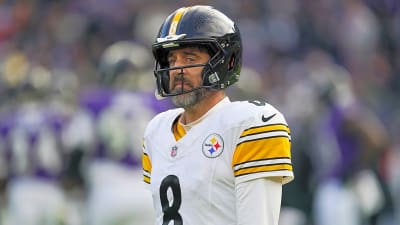
In 2024-25, the Carolina Hurricanes’ special teams were a mixed bag. Special teams are the core essentials of our sport, often deciding close games and playoff series. It’s rare to see a team boast one of the best power plays and the best penalty kills in the same season, and that is no small success from the Hurricanes roster. Despite being dominant in one facet, the other is the downfall of the Canes in the critical moments. They’ve been factors in deciding the outcome of the Hurricanes’ seasons recently. They had some success in the playoffs in 2024-25, but the new season brings new challenges.
After another summer of change, the Hurricanes will be looking for the same outstanding results from a group of new faces. They’ll be looking for growth and development on the special teams front. Carolina’s unique approach to the game will make the transition to the new system tricky for some of the new additions, and the list of departures will significantly change how this organization lines up on the special teams front.
The Penalty Kill
For years, the Hurricanes’ penalty kill has been among the best in the NHL. It has been the best in the league in three of the last five seasons, including the previous two consecutively. It’s not been below the third best in the league since 2019-20, where it was fourth. Under Rod Brind’Amour, the penalty kill has never finished outside the top 10 in the regular season. It’s the Hurricanes’ forte, often being more effective for energizing the team than a power play would be. It often provided the spark to turn games around.
To maintain their elite status as a shorthanded unit, the Hurricanes will face significant roster turnover. Veteran penalty killers like Brent Burns and Dmitry Orlov have found new homes in the Western Conference. It follows players like Brady Skjei and Brett Pesce departing the elite shutdown unit last offseason. Veterans like Sean Walker and Shayne Gostisbehere came in to replace them, but this season, there’s been a different approach. To replace Burns and Orlov come Alexander Nikishin and K’Andre Miller.
Both Miller and Nikishin can be great defensemen, but they’re not ideal fits to play shorthanded. Miller can do it, and did with the Rangers, but Nikishin will be a rookie. Is it worth a trial by fire on the best shutdown unit in the league? If it goes well, it looks like a genius move, but if he has growing pains, it could damage the ever-dependable crutch the Hurricanes rely on.
As for the forwards shorthanded, it’s mostly the same unit as last season. Jordan Staal, Jordan Martinook, Seth Jarvis, Sebastian Aho, and Eric Robinson headline the unit that killed a league-leading 83% of its penalties last season. It’s not the almost 90% of a few seasons earlier, but it’ll be another year of learning under Tim Gleason, the Hurricanes’ shorthanded guru. With young guys like Logan Stankoven and Jackson Blake becoming more dependable, the penalty-killing forwards should be okay.
The Power Play
If the PK has been the strength of the Hurricanes, the power play has been the Achilles heel. The Hurricanes’ power play ranked 25th last season, despite being the second-best in the league the season prior. Part of that is due to the amount of talent that left the forward core, as Teuvo Teravainen, Jake Guentzel, and Stefan Noesen, who were all key parts of Carolina’s power play, found new homes elsewhere. Now, the Hurricanes have a similar issue with no Martin Necas, Mikko Rantanen, or Jack Roslovic. Roslovic might not seem like a big miss, but he recorded more 5-on-5 points than anyone else on the Hurricanes last season, so that might be a miss. His talent struggled to shine on the power play with just a single point last season, but he was also on the second unit predominantly.
Rantanen was only a Hurricane for a few weeks, but that disjointed power-play approach started to rear its ugly head after the Hurricanes tried to accommodate him. Losing Necas’ zone entries was another issue, so perhaps a preseason to gel and get on the same wavelength as a unit could help the Hurricanes unit begin to understand each other again. Carolina’s power play was costly in its underwhelming performances last season. Changing that could change their fortunes in the playoffs.
To replace what was lost, Carolina landed a big fish free agent in Nikolaj Ehlers. It’s also going to be the first preseason for Taylor Hall and Stankoven with the Hurricanes, so that period of adjustment for both might help Carolina. When it comes to the lineup of the units, that doesn’t matter. The Hurricanes love to mix their combinations up, and those that miss out on the top unit will get shots there at various points. Carolina badly missed the zone entries of Necas after his trade to the Colorado Avalanche in January, so this will be a time for the Hurricanes to come up with a solution for getting into the zone.
For the backend, the power play quarterback from last season is gone. Burns was the go-to guy for the Hurricanes’ power play, so there will now be an opening. The logical solution is that Shayne Gostisbehere takes the reins on the first unit, but that leaves a gap on the second. With Miller and Nikishin now on the roster, there’s a justifiable case for both to take that second slot. Nikishin was an offensive monster in the Kontinental Hockey League (KHL), but the pressure of a power play unit may be unnecessary this early into his NHL career. Miller manned the second unit in New York, so perhaps that’s the option Carolina runs.
Jaccob Slavin and Sean Walker both got time on the power play last season, which may speak more towards why it struggled than those two being the solution. Ultimately, the struggling power play comes down to the issues Carolina endures in its scoring. Adding more high-end talent is the ultimate solution, but that won’t stop the Canes from trying to get more out of what they already have.
Overall, the Hurricanes’ special teams units should both move more towards the mean than last season. Carolina’s suffocating defensive lineup has shifted towards a more balanced approach for the 2025-26 campaign. Whether the Hurricanes can build upon the success of past generations will be a key factor in their playoff success in the coming season. No one will care how the regular season goes for Carolina, as long as they make the playoffs. Will the revamped special teams make a difference in the pressure of the postseason? Only time will tell.
More must-reads:
- 'Heartbroken beyond words': Remembering Greg Biffle, NASCAR's underappreciated star
- Giannis Antetokounmpo has clear message amid NBA trade rumors
- The 'NFL's active TD-catch leaders' quiz
Breaking News
Trending News
Customize Your Newsletter
 +
+
Get the latest news and rumors, customized to your favorite sports and teams. Emailed daily. Always free!








